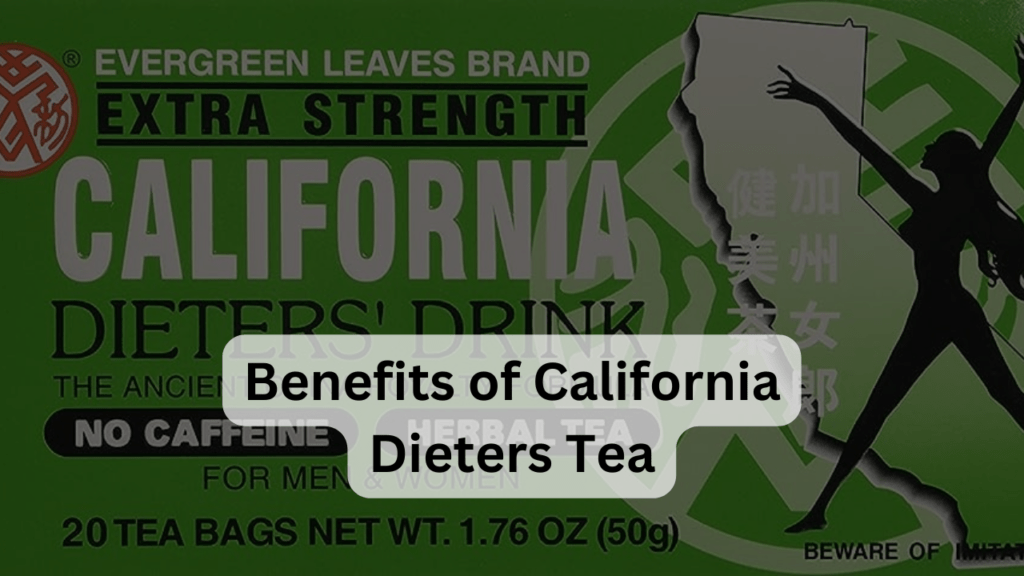Muscle spasms and high blood pressure are two common conditions that can significantly impact your quality of life. While both are manageable, their treatments sometimes raise concerns about potential interactions. One such concern is whether can you take muscle relaxers with blood pressure medication.
Understanding the potential risks and benefits of combining these medications is crucial for making informed decisions about your health. This article delves deep into the complexities of this interaction, exploring the types of muscle relaxers, their effects on blood pressure, and potential safety considerations when used alongside blood pressure medications.
Understanding Muscle Relaxers and Their Effects on Blood Pressure
Muscle relaxers, as the name suggests, target the nervous system to alleviate muscle tension and spasms. They work by interfering with nerve signals that control muscle contractions. However, their effects can extend beyond the neuromuscular system, potentially impacting blood pressure.
The impact of muscle relaxers on blood pressure can vary depending on the specific type and individual factors. Here’s a breakdown of the different types and their potential effects:
- Centrally-acting muscle relaxers: These medications, like cyclobenzaprine (Flexeril) and methocarbamol (Robaxin), act on the central nervous system to reduce muscle tone. While some may cause slight drowsiness or dizziness, their effect on blood pressure is generally minimal.
- Direct-acting muscle relaxers: These medications, like baclofen (Lioresal) and tizanidine (Zanaflex), directly affect muscle cells, reducing their contractile activity. They can lower blood pressure, sometimes significantly, especially in individuals already taking blood pressure medication.
Potential Risks & Considerations When Combining Muscle Relaxers & Blood Pressure Medication

While some muscle relaxers may not significantly affect blood pressure, combining them with blood pressure medications can raise concerns. Here are some potential risks to consider:
- Additive blood pressure lowering: Both muscle relaxers and some blood pressure medications can lower blood pressure. Combining them could lead to excessive hypotension (low blood pressure), causing dizziness, lightheadedness, and even fainting.
- Increased side effects: Combining medications can amplify side effects like drowsiness, dizziness, and confusion, especially with centrally-acting muscle relaxers.
- Drug interactions: Certain muscle relaxers can interact with specific blood pressure medications, altering their effectiveness or increasing side effects.
READ: Can Sinus and Ear Infections Cause High Blood Pressure?
Navigating the Safe Use of Muscle Relaxers with Blood Pressure Medication
If you require both muscle relaxers and blood pressure medication, prioritizing safety and open communication with your healthcare provider is crucial. Here are some key steps:
- Inform your doctor: Always disclose your complete medication list, including over-the-counter drugs and supplements, to your doctor before starting any new medication, including muscle relaxers.
- Monitor blood pressure closely: Regularly monitor your blood pressure, especially after starting or adjusting dosages of either medication.
- Start low and go slow: Begin with the lowest effective dose of both medications and gradually increase dosages only as needed and under your doctor’s supervision.
- Choose wisely: Opt for muscle relaxers with minimal blood pressure-lowering effects, especially if you have existing hypotension or are taking multiple blood pressure medications.
- Be mindful of side effects: Pay attention to any new or worsening side effects like dizziness, drowsiness, or fainting. Report them promptly to your doctor.
Different Muscle Relaxers and Blood Pressure Medication Interactions
Now that we’ve established the general landscape of combining muscle relaxers and blood pressure medication, let’s delve deeper into the specific interactions of different drug classes. This knowledge empowers you to have more informed conversations with your healthcare provider and make personalized decisions about your treatment plan.

Centrally-Acting Muscle Relaxers and Blood Pressure Medication
- Cyclobenzaprine (Flexeril): This commonly prescribed muscle relaxer has minimal to no direct effect on blood pressure. However, its drowsiness-inducing properties can lead to dizziness when combined with certain blood pressure medications, particularly ACE inhibitors and beta-blockers.
- Methocarbamol (Robaxin): Similar to cyclobenzaprine, methocarbamol’s impact on blood pressure is primarily indirect through drowsiness and potential dizziness. Combining it with vasodilators, a class of blood pressure medications that widen blood vessels could amplify hypotension in some individuals.
- Carisoprodol (Soma): This muscle relaxer can slightly lower blood pressure, especially in high doses. Combining it with other blood pressure-lowering medications, like diuretics, may lead to excessive hypotension. Additionally, carisoprodol can interact with certain blood pressure medications, increasing their sedative effects.
READ: Can I Take Golo with High Blood Pressure?
Direct-Acting Muscle Relaxers and Blood Pressure Medication
- Baclofen (Lioresal): This muscle relaxer can significantly lower blood pressure, particularly in higher doses. Combining it with blood pressure medications, especially alpha-blockers or direct renin inhibitors, can lead to dangerously low blood pressure. Close monitoring and dosage adjustments are crucial.
- Tizanidine (Zanaflex): Similar to baclofen, tizanidine can lower blood pressure, especially in individuals already taking medications for hypertension. Combining it with vasodilators or diuretics can further increase this effect. Careful monitoring and dosage adjustments are essential.
- Dantrolene (Dantrium): This muscle relaxer primarily affects skeletal muscle contraction and has minimal direct effect on blood pressure. However, it can weaken the heart muscle in high doses, potentially impacting individuals with pre-existing heart conditions and those taking certain blood pressure medications.
Remember: This information is not intended to replace professional medical advice. Always consult your doctor before taking any new medication or combination of medications, especially if you have high blood pressure.
Complementary Strategies for Pain Management
While medication plays a crucial role in managing both muscle pain and high blood pressure, incorporating complementary strategies can enhance your overall well-being and potentially reduce reliance on medication. Here are some effective approaches:

Physical Therapy
- A physical therapist can assess your specific condition and design a personalized exercise program to strengthen muscles, improve flexibility, and address muscle imbalances that contribute to pain.
- Stretching exercises prescribed by a physical therapist can help promote muscle relaxation and reduce tension.
- Therapeutic modalities like heat therapy, ultrasound, and electrical stimulation can further enhance muscle healing and pain relief.
Mind-Body Techniques
- Stress and anxiety can exacerbate muscle tension and pain. Practices like meditation, yoga, and deep breathing can help manage stress and promote relaxation, leading to reduced muscle tension and pain.
- Biofeedback therapy teaches you to control involuntary body functions like muscle tension through relaxation techniques. This can be a valuable tool for managing chronic pain.
Lifestyle Modifications
- Maintaining a healthy weight can significantly reduce pressure on muscles and joints, alleviating pain.
- Eating a balanced diet rich in fruits, vegetables, and whole grains provides essential nutrients for muscle health and pain management.
- Adequate sleep is crucial for overall health and recovery. Aim for 7-8 hours of quality sleep each night.
- Avoiding tobacco and excessive alcohol consumption can worsen pain and interfere with muscle healing.
By incorporating these complementary strategies alongside appropriate medication, you can create a comprehensive approach to managing both muscle pain and high blood pressure, paving the way for a healthier and more active life.
RECOMMENDED ARTICLES:
Is Celtic Salt Good for High Blood Pressure?
Does Lipo-Flavonoids Affect Your Blood Pressure?
Does Prozac Raise Blood Pressure?
Conclusion
Managing both muscle pain and high blood pressure requires a delicate balancing act. Understanding the potential interactions between muscle relaxers and blood pressure medications is crucial for making informed decisions about your health.
This knowledge empowers you to work collaboratively with your healthcare provider to develop a personalized treatment plan that prioritizes safety and efficacy.
By incorporating a multi-faceted approach that combines appropriate medication with complementary strategies like physical therapy, mind-body techniques, and lifestyle modifications, you can not only alleviate pain and manage blood pressure but also cultivate a foundation for overall well-being.
Remember, prioritizing open communication with your healthcare provider, monitoring your health closely, and adopting healthy lifestyle habits are key to navigating this balancing act and paving the way for a brighter, healthier tomorrow.
Resources & References
For further information and personalized guidance, consult the following resources:
- National Institutes of Health (NIH): https://www.nih.gov/
- American Heart Association (AHA): https://www.heart.org/
- American College of Sports Medicine (ACSM): https://www.acsm.org/
- National Center for Complementary and Integrative Health (NCCIH): https://nccih.nih.gov/
FAQs – Muscle Relaxers & Blood Pressure Medication
Is it safe to take muscle relaxers with blood pressure medication?
In general, it depends on the specific types of muscle relaxers and blood pressure medications you are taking. Some muscle relaxers can lower blood pressure, while others have minimal effects. Some blood pressure medications can also interact with muscle relaxers, increasing the risk of side effects like dizziness or drowsiness.
It is always best to talk to your doctor before taking any new medication, including muscle relaxers, if you are already taking blood pressure medication. They can review your specific medications and medical history to determine if it is safe to combine them.
What are the risks of taking muscle relaxers with blood pressure medication?
The most common risks of taking muscle relaxers with blood pressure medication include:
- Low blood pressure (hypotension): This can happen if both medications lower blood pressure. Symptoms of hypotension can include dizziness, lightheadedness, and fainting.
- Drowsiness: Some muscle relaxers can cause drowsiness, which can be worsened by certain blood pressure medications.
- Increased risk of falls: Drowsiness and dizziness can increase your risk of falling, especially if you are older or have balance problems.
What are some alternative pain relief options for people with high blood pressure?
If you are concerned about taking muscle relaxers with blood pressure medication, there are other ways to relieve muscle pain. These include:
- Over-the-counter pain relievers: Acetaminophen (Tylenol) and ibuprofen (Advil) can be effective for mild to moderate muscle pain.
- Heat therapy: Applying a heating pad to the affected area can help relax muscles and relieve pain.
- Cold therapy: Applying an ice pack to the affected area can help reduce inflammation and pain.
- Physical therapy: A physical therapist can teach you exercises and stretches that can help strengthen your muscles and improve your flexibility.
What should I do if I experience side effects after taking muscle relaxers with blood pressure medication?
If you experience any side effects after taking muscle relaxers with blood pressure medication, it is important to stop taking the medications and contact your doctor right away. Some side effects, such as severe dizziness or fainting, can be serious and require immediate medical attention.
Can I take muscle relaxers over the counter if I have high blood pressure?
It is generally not recommended to take over-the-counter muscle relaxers if you have high blood pressure. This is because some over-the-counter muscle relaxers contain decongestants or antihistamines, which can raise blood pressure. It is always best to talk to your doctor before taking any over-the-counter medications, including muscle relaxers.
How can I manage my muscle pain and high blood pressure effectively?
The best way to manage your muscle pain and high blood pressure is to work with your doctor to develop a treatment plan that is right for you. This may include taking medication, making lifestyle changes, and participating in physical therapy. Some lifestyle changes that can help manage both muscle pain and high blood pressure include:
- Eating a healthy diet
- Maintaining a healthy weight
- Getting regular exercise
- Managing stress
- Getting enough sleep
By working with your doctor and making healthy lifestyle changes, you can effectively manage your muscle pain and high blood pressure and live a healthy life.


